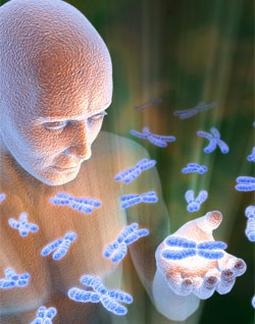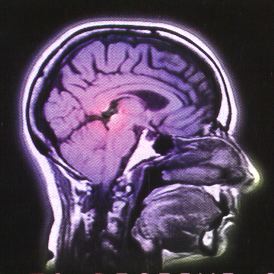 El Profesor de Genética del Comportamiento del Instituto de Psiquiatría de Londres, Robert Plomin lleva años estudiando gemelos y niños adoptados. La razón de ello es que en estos individuos se pueden apreciar, más que en ningunos otros, las respectivas influencias del ambiente y de los genes en el desarrollo de la personalidad y la conducta a lo largo de la vida. Sus estudios son longitudinales y estadísticos, esto es, por un lado suponen un seguimiento de los estudiados a lo largo de los años, para observar los cambios que se producen en sus características psicológicas y comportamentales, y por otro el tratamiento matemático de los datos procedentes de gran número de observaciones de gran número de sujetos.
El Profesor de Genética del Comportamiento del Instituto de Psiquiatría de Londres, Robert Plomin lleva años estudiando gemelos y niños adoptados. La razón de ello es que en estos individuos se pueden apreciar, más que en ningunos otros, las respectivas influencias del ambiente y de los genes en el desarrollo de la personalidad y la conducta a lo largo de la vida. Sus estudios son longitudinales y estadísticos, esto es, por un lado suponen un seguimiento de los estudiados a lo largo de los años, para observar los cambios que se producen en sus características psicológicas y comportamentales, y por otro el tratamiento matemático de los datos procedentes de gran número de observaciones de gran número de sujetos.La genética de la conducta no es, realmente, una ciencia nueva. Sus orígenes se remontan a las investigaciones realizadas por el primo de Darwin, Sir Francis Galton, en el siglo XIX. Sin embargo durante mucho tiempo, y a consecuencia de los excesos cometidos en nombre de la eugenesia en el siglo XX, así como debido a la falta de medios técnicos y conocimientos de biología molecular, no ha sido una ciencia reconocida ni plenamente madura.
Algunos estudios destacados, como el realizado por Thomas J. Bouchard en Minnesota con gemelos adoptados, llamaron la atención sobre la importancia de los genes en nuestro comportamiento. Dado que el denominado modelo estándar de las ciencias sociales dominaba el panorama intelectual, y que todo intento de explicar la naturaleza humana en términos biológicos despertaba fuertes suspicacias y agresivas controversias, los datos proporcionados por la genética de la conducta supusieron el empujón definitivo que conducía a un verdadero cambio de paradigma.
Robert Plomin participó junto con John C.DeFries en otro estudio importante, de 200 niños adoptados en Colorado, el Colorado Adoption Project, que comenzó en 1975 y continúa en la actualidad. Asimismo dirige un ambicioso estudio de todos los gemelos nacidos en Inglaterra durante el período 1994-1996 y ha escrito, junto con otros genetistas de la conducta, un manual de la especialidad, cuya 5ª Edición se publicó hace poco en Inglaterra.
El Profesor Plomin ha tenido la cortesía de responder algunas preguntas que Kantor, Memetic Warrior y yo le hemos formulado (Kantor 1-4; MW 5; G 6-8). Gracias a Kantor por la traducción al español.
En inglés:
 1.- If I understood properly your book, the basis of behavioural genetics are psicometry and variance decomposition. Let´s beguin with psicometry: how real, stable and meaningful are psicometric measures, as IQ or personality profiles? What do you think about the classical Jay Gould´s book «The mis-measurement of Man»? Can IQ be significantly changed after childhood?
1.- If I understood properly your book, the basis of behavioural genetics are psicometry and variance decomposition. Let´s beguin with psicometry: how real, stable and meaningful are psicometric measures, as IQ or personality profiles? What do you think about the classical Jay Gould´s book «The mis-measurement of Man»? Can IQ be significantly changed after childhood?
Behavioural genetics is just genetics applied to behaviour just as medical genetics is genetics applied to medicine. It includes both quantitative genetics (e.g., twin and adoption studies) as well as molecular genetics (DNA). The genetics is only as good as the measures to which it applies. IQ measures are among the most reliable, stable and predictive behavioural measures.
2.- Are psicometric variables much less heritable than anthropometric ones? For example, height, personal mass index, or skin tone are far more heritable than personality profile and IQ? Comparing with other quantitative genetic variables, are psicometric variables really more the result of nurture than other physical characteristics? Is there some literature comparing psicometry with anthropometry from a nature-nurture viewpoint?
Some physical traits are very highly heritable like height (~90%) height and weight (~70%). Others are less heritable (blood pressure; cancers). Most behavioural traits show some heritability (it’s hard to find any trait reliably measured that shows zero heritability) but some (cognitive abilities and disabilities) show more heritability than others (e.g., personality).
With genome-wide association studies that look at hundreds of thousands of DNA markers on a microarray the size of a postage stamp, some real progress is being made. However, progress has been much slower than expected – for all common disorders and complex traits, not just behavioural traits and disorders. I believe the reason for this is that these traits are heritable (which means that DNA sequence variation is ultimately responsible) but, instead of looking for just a few genes, there are many genes of small effect size.
This means that it will be difficult to detect and replicate these genes. I think it is an open question to what extent we will identify the specific genes responsible for the heritability of common disorders and complex traits.
4.-The relation between nature and nurture is very complex in an strongly social species as ours; for example, it is difficult to decide if people are violent because of being raised in a violent neighbourhood, or if violent neighbourhoods are the result of a social decantation process that segregates the society in a group with a high concentration of «violent genes», and other with a low concentration. In fact, probably both processes run, and our observed data are the result of a feedback between genetic and social processes. Do we have statistical tools to separate «correlation» and «causality» in socio-biological processes? Can you recommend literature (books or papers) for social scientists interested in this sort of socio-genetic processes?
Because of the complexity to which you refer, theories of socialisation from Freud onwards assumed that nurture, not nature, was important. However, decades of quantitative genetic research have shown that genetics plays a much larger role than had been expected. For a good history of this, see Steve Pinker’s book, The Blank Slate. What’s exciting about beginning to find associations between DNA markers and behavioural disorders and dimensions is that correlations involving DNA sequence variance can be interpreted causally – that is, the environment or behaviour do not cause differences in DNA sequence. In contrast, for example, correlations between brain events and behaviour are not necessarily causal – behavioural differences can cause brain differences. Concerning a literature on quantitative genetic tools to disentangle nature and nurture, please see my textbook on behavioural genetics.
5.-For how long eugenics will stay away of the political agendas? Are you optimistic or pessimistic? What do you think about philosophers like Sloterdijk?
I think the issue of eugenics has been with us for a long time. Amniocentesis is often done to make a decision about aborting a fetus on the basis of genetic risk. However, these decisions will be much more complicated for common disorders and complex traits that are influenced by many genes of small effect – the genetic risk is only probabilistic not deterministic. I think ultimately that people will vote with their feet as women did with amniocentesis. However, I think prenatal selection will not be a big issue – far more important is the ability to use DNA risk information to predict which children are likely to have problems and to seek to prevent those problems – using environmental and behavioural engineering, not genetic engineering. For 40 years, nearly all countries administer the Guthrie test in the first few days of life because if the single-gene recessive disease is detected early a diet low in phenylalanine can be administered which attenuates the effect of the genetic risk.
6 .- How do you see, as behavioural genetist, the ideas about the multilevel selection? And the memetics?
I think that behaviour drives a lot of evolution and intrinsically involves multilevel selection. This may be why there are so many genes of such small effect. About memetics, no doubt there is cultural transmission but I’m agnostic about the usefulness of the construct of meme.
7 .- The controversial nature / nurture tends to arise in a very simplistic way since it is widely thought that genetics determines behavior in a linear fashion, with a single genes for every behavioural character (gene for alcoholism or gene for eagerness to risk, for example). Beyond that, everything is considered environmental. However complex characters, such as behavioral ones, are determined by multiple genes, and also genes are expressed or not in the development of the individual, being the products of many of them switches for others. Could it open wide our perspective on the power of genes? Aren´t there, in fact, «environmental» differences genetically determined?
 Some of these various issues are mentioned above and they are discussed in my BG textbook. We learn about genetics from Mendel who studied single-gene disorders in pea plants – that’s in part why we think of genetic influence in terms of single genes and hard-wired determinism. There are thousands of single-gene disorders in humans too but they are rare. For example, if you have the allele for Huntington’s disease, it will kill you regardless of your other genes or environments. However, common disorders and complex traits are influenced by many genes of small effect and thus their effects are probabilistic rather than predetermined. Your third question about gene expression is complicated (also discussed in my BG text). DNA has to be transcribed into RNA to have an effect but individual differences in gene expression (i.e.,, quantity of messenger RNA transcripts) is a phenotype that could be genetic or environmental in origin. I am interested in using gene expression as an index of environmental influence. Your last question is a different topic, one that has been called the ‘nature of nurture’. Environmental measures – for example, parenting and stress – show about as much genetic influence as personality measures.
Some of these various issues are mentioned above and they are discussed in my BG textbook. We learn about genetics from Mendel who studied single-gene disorders in pea plants – that’s in part why we think of genetic influence in terms of single genes and hard-wired determinism. There are thousands of single-gene disorders in humans too but they are rare. For example, if you have the allele for Huntington’s disease, it will kill you regardless of your other genes or environments. However, common disorders and complex traits are influenced by many genes of small effect and thus their effects are probabilistic rather than predetermined. Your third question about gene expression is complicated (also discussed in my BG text). DNA has to be transcribed into RNA to have an effect but individual differences in gene expression (i.e.,, quantity of messenger RNA transcripts) is a phenotype that could be genetic or environmental in origin. I am interested in using gene expression as an index of environmental influence. Your last question is a different topic, one that has been called the ‘nature of nurture’. Environmental measures – for example, parenting and stress – show about as much genetic influence as personality measures.
8.-Genes determine the structure and function of the brain. Some major circuits and brain physiology are well known, but the microstructure of brain networks is still relatively unknown. Is it the description of this microestructure where the genetic individual differences play their role?
Once we identify genes responsible for the heritability of behaviour, we can begin to trace the complex pathways from genes to brain to behaviour.
 1.-Si he entendido correctamente su libro, las bases de la genética del comportamiento son la psicometría y la descomposición de varianza. Empecemos por la psicometría: ¿como de reales, estables y significativas son las medidas psicométricas como el coeficiente intelectual (CI) o los perfiles de personalidad? ¿Qué opina sobre el libro clásico de Jay Gould “La falsa medida del hombre”? ¿Puede el CI alterarse significativamente después de la infancia?
1.-Si he entendido correctamente su libro, las bases de la genética del comportamiento son la psicometría y la descomposición de varianza. Empecemos por la psicometría: ¿como de reales, estables y significativas son las medidas psicométricas como el coeficiente intelectual (CI) o los perfiles de personalidad? ¿Qué opina sobre el libro clásico de Jay Gould “La falsa medida del hombre”? ¿Puede el CI alterarse significativamente después de la infancia?
2.-¿Son las variables psicométricas menos heredables que las antropométricas? Por ejemplo, la altura, el peso, el índice de masa corporal o el tono de piel ¿son más heredables que el CI o el perfil de personalidad? ¿Hay literatura comparativa sobre los componentes de naturaleza y ambiente en psicometría y antropometría?
 4.-La relación entre ambiente y herencia es compleja en una especie fuertemente social como la nuestra: por ejemplo, es difícil decidir si los individuos son violentos como resultado de crecer en un vecindario violento, o si los vecindarios violentos se forman mediante un proceso de decantación social que segrega la sociedad en grupos con alta y baja concentración de “genes de la violencia”. Probablemente ambos procesos se dan, y los datos observados son el resultado de un feedback entre procesos sociales y genéticos. ¿Tenemos herramientas estadísticas capaces de separar “correlación” y “causalidad” en los procesos socio-biológicos? ¿Puede usted recomendar lecturas para los científicos sociales interesados en procesos socio-genéticos?
4.-La relación entre ambiente y herencia es compleja en una especie fuertemente social como la nuestra: por ejemplo, es difícil decidir si los individuos son violentos como resultado de crecer en un vecindario violento, o si los vecindarios violentos se forman mediante un proceso de decantación social que segrega la sociedad en grupos con alta y baja concentración de “genes de la violencia”. Probablemente ambos procesos se dan, y los datos observados son el resultado de un feedback entre procesos sociales y genéticos. ¿Tenemos herramientas estadísticas capaces de separar “correlación” y “causalidad” en los procesos socio-biológicos? ¿Puede usted recomendar lecturas para los científicos sociales interesados en procesos socio-genéticos?Debido a la complejidad a la que usted se refiere, las teorías de la socialización de Freud en adelante asumen que el ambiente y no la genética es lo importante. Sin embargo, décadas de investigación en genética cuantitativa han demostrado que la genética juega un papel superior al esperado. Para una historia de este proceso, vea el libro de Steven Pinker “La tabla rasa”. Lo excitante de empezar a encontrar asociaciones entre marcadores genéticos y desórdenes y caracteres de la conducta es que las correlaciones que incluyen una cadena de ADN se pueden interpretar causalmente (es decir, el ambiente o la conducta no causan las diferencias entre cadenas de AND). Por el contrario, las relaciones entre eventos neurológicos y la conducta no son necesariamente causales: las diferencias de conducta se pueden reflejar en diferencias neurológicas. En cuanto a la literatura sobre herramientas estadísticas para distinguir “naturaleza” y “conducta”, le propongo mi libro sobre genética conductual.
5.-¿Por cuanto tiempo la eugenesia se mantendrá alejada de las agendas políticas? ¿Es usted optimista o pesimista sobre esto? ¿Qué opina de filósofos como Sloterdijk?
Creo que el tema de la Eugenesia ha estado entre nosotros por mucho tiempo. La amniocentesis se hace frecuentemente para decidir sobre el aborto de un feto en base a los riesgos genéticos. Sin embargo estas decisiones serán mucho más complicadas cuando se trate de muchos genes con efectos pequeños, en los que el riesgo genético es solo probabilístico. Al final creo que la gente votará con los pies como hicieron las mujeres con la amniocéntesis. No obstante no creo que la selección prenatal sea un asunto demasiado importante. Será mucho más importante el uso del ADN para predecir que niños tienen que riesgos y tratar de prevenirlos, utilizando ingeniería conductual y del ambiente más que ingeniería genética. Durante los últimos 40 años casi todos los países del mundo han administrado el test de Guthrie en los primeros días de vida porque si el gen recesivo de la enfermedad se detecta prematuramente se puede utilizar una dieta baja en fenilalanina para atenuar los riesgos asociados al gen.
6.-¿Cómo ve un genetista de la conducta las ideas acerca de la selección multinivel? ¿Y de la memética?
7.- La polémica naturaleza/cultura suele plantearse de forma muy simplista al considerarse que la genética determina conductas de una forma lineal, con genes únicos (gen del alcoholismo o gen para el afán por el riesgo, por ejemplo). Más allá de eso todo se considera ambiente. Sin embargo los caracteres complejos, como los conductuales, son determinados por varios genes, y además los genes se expresan o no a lo largo del desarrollo, siendo los productos de muchos de ellos interruptores de otros. ¿No amplia esto nuestra perspectiva sobre el poder de los genes? ¿no hay de hecho diferencias «ambientales» genéticamente determinadas?
Algunos de estos asuntos se mencionan anteriormente y los discuto en mi libro de genética de la conducta. Hemos aprendido genética de Mendel, quién estudió alteraciones en un solo gen, en la planta del guisante- y por eso pensamos en la genética en términos de determinismo. Hay miles de alteraciones mono-genéticas en humanos, pero son relativamente raras. Por ejemplo, si tienes el gen de la corea de Huntington, te matará con independencia del resto de tus genes y del ambiente. Sin embargo, la mayor parte de los desórdenes comunes y los caracteres complejos, están influidos por muchos genes con efectos pequeños, y sus consecuencias son probabilísticas en vez de predeterminadas. Tu tercera pregunta sobre la expresión génica es complicada (se discute en mi libro de genética de la conducta). El ADN se tiene que transcribir en el ARN, para ser efectivo, pero las diferencias individuales en la transmisión génica (por ejemplo la concentración de ARN mensajero que transcribe un gen dado en una célula) son fenotipos que puede estar condicionados genética o ambientalmente. Yo estoy interesado en la usar expresión génica como un índice de influencia ambiental. Las medidas ambientales (como las asociadas al estilo parental o al stress) muestran tanto influencia genética como rasgos de personalidad.
 8.-Los genes determinan la estructura y función del cerebro. Se conocen grandes circuitos y algo de la fisiología cerebral, pero la microestructura no tanto. ¿No será en ella donde desempeñe un papel más determinante la constitución genética del individuo?
8.-Los genes determinan la estructura y función del cerebro. Se conocen grandes circuitos y algo de la fisiología cerebral, pero la microestructura no tanto. ¿No será en ella donde desempeñe un papel más determinante la constitución genética del individuo?
Publicado también en La Nueva Ilustración Evolucionista.




